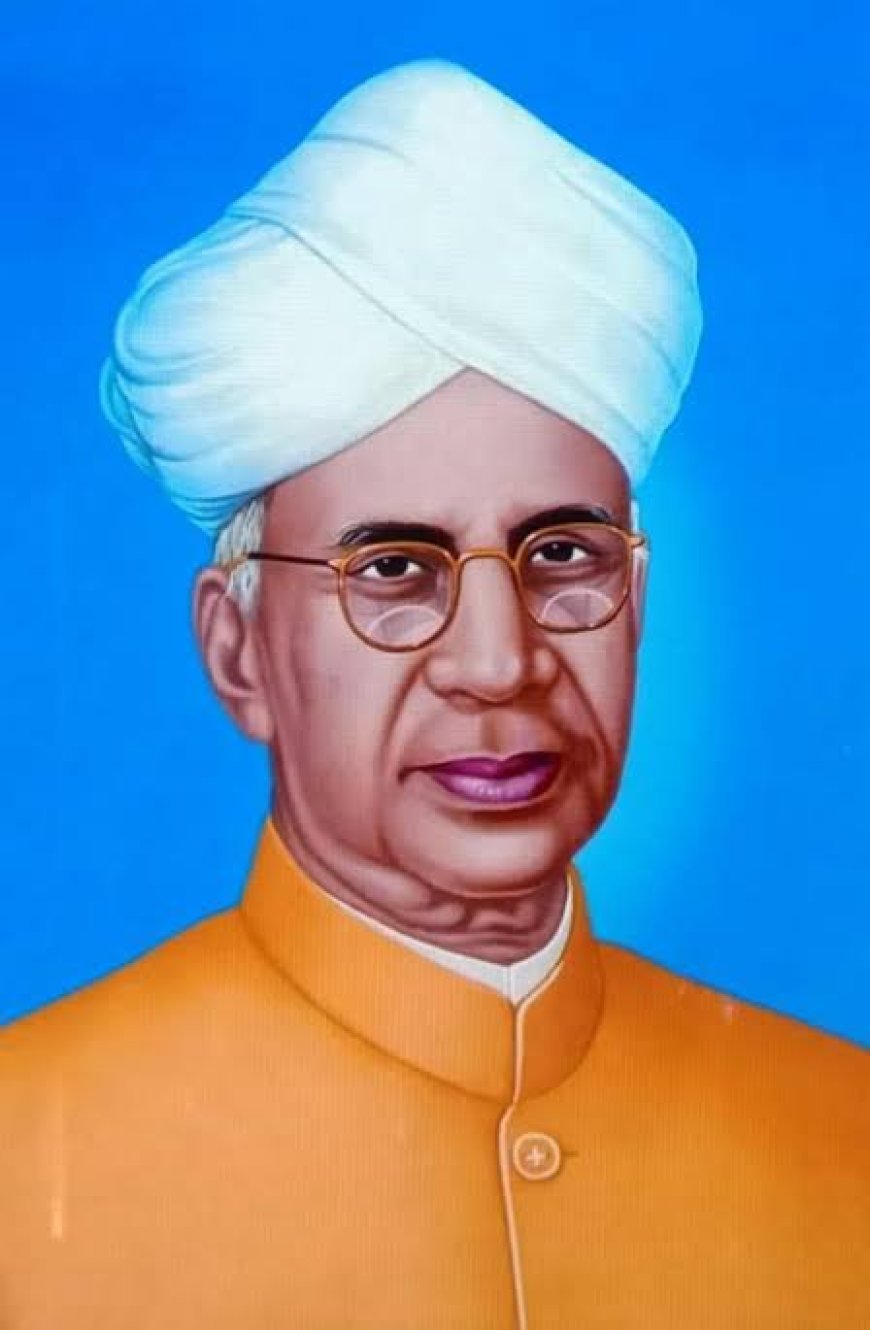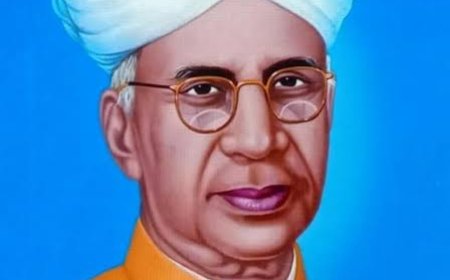Dr. Sarvepalli Radhakrishnan: A Scholar, Statesman, and Philosopher
Dr. Sarvepalli Radhakrishnan: A Scholar, Statesman, and Philosopher

Dr. Sarvepalli Radhakrishnan: A Scholar, Statesman, and Philosopher
Introduction
Dr. Sarvepalli Radhakrishnan was one of the most influential figures in Indian history, celebrated as a philosopher, scholar, and statesman. Born on September 5, 1888, in a small village in Tamil Nadu, he rose to become India's first Vice President and the second President of the country. His life was a testimony to the power of education, the pursuit of wisdom, and the commitment to national service. His birthday is celebrated as Teacher's Day in India to honor his contributions to education and his belief in the role of teachers in shaping the future of the nation.
This article provides a comprehensive overview of Dr. Radhakrishnan’s life, philosophy, contributions to education, and his legacy.
Early Life and Education
Sarvepalli Radhakrishnan was born into a middle-class Brahmin family in the village of Tiruttani in Tamil Nadu. His father, Sarvepalli Veeraswami, was a revenue official, and his mother, Sitamma, was a devout homemaker. From an early age, Radhakrishnan showed a great aptitude for learning, and his family, despite their modest means, recognized his potential and supported his education.
He attended schools in Tirupati and Vellore before enrolling in Madras Christian College, one of the premier institutions of higher learning in South India. He earned his bachelor’s and master’s degrees in philosophy, a subject that would shape his intellectual pursuits for the rest of his life. His master’s thesis was on "The Ethics of the Vedanta and Its Metaphysical Presuppositions," in which he defended the Vedantic tradition against the criticism of Western scholars, marking the beginning of his lifelong endeavor to bridge Indian and Western philosophies.
Academic Career and Philosophical Contributions
After completing his education, Radhakrishnan embarked on an academic career, beginning as an Assistant Professor of Philosophy at the University of Mysore in 1918. His teaching was noted for its clarity, depth, and the ability to engage with students in meaningful ways. He later moved to the University of Calcutta, where he was appointed to the prestigious King George V Chair of Philosophy.
Radhakrishnan’s philosophical work focused on Indian philosophy and religion, particularly the Vedanta, which is a school of Hindu philosophy. He is often credited with popularizing Indian philosophy in the West, as well as defending it from the charges of irrationality and mysticism often leveled against it by Western scholars. His most notable work, The Philosophy of Rabindranath Tagore (1918), highlights his belief that India's cultural and spiritual traditions were central to its national identity.
His seminal book, Indian Philosophy (1923-1927), is regarded as a masterful presentation of Indian thought, spanning from the Vedic era to modern times. It helped place Indian philosophy on the global intellectual map. Through his numerous books, essays, and lectures, Radhakrishnan argued that Indian philosophy, particularly Advaita Vedanta, offered profound insights into the nature of reality, ethics, and human existence.
One of his core beliefs was the idea of "integral experience"—the notion that all knowledge, whether scientific, philosophical, or religious, arises from a common source and can be unified in a holistic understanding of life. He saw no inherent contradiction between faith and reason, emphasizing that spiritual insights and rational inquiry could coexist harmoniously. This approach allowed him to advocate for inter-religious dialogue and understanding, especially between Hinduism and Christianity.
Political Career and Role as Statesman
Though an academic by training, Radhakrishnan was deeply engaged with India's political life. His political involvement gained prominence when he represented India at international forums during the years leading up to independence. He was appointed as the Ambassador to the Soviet Union in 1949, a position he held until 1952. During this time, he helped strengthen India's relations with the Soviet Union, despite the geopolitical tensions of the Cold War.
In 1952, Radhakrishnan was elected as the first Vice President of India, a position that allowed him to influence the country’s nascent political framework while maintaining his deep engagement with intellectual and cultural pursuits. His dignity, grace, and philosophical insight were well-recognized in this role, as he balanced the responsibilities of the office with his scholarly interests.
In 1962, he succeeded Dr. Rajendra Prasad as the second President of India. His tenure as President (1962-1967) was marked by significant challenges, including the India-China war of 1962 and rising internal political unrest. However, Radhakrishnan maintained a calm, moral presence, emphasizing the need for unity and national purpose.
Philosophy of Education
One of Radhakrishnan's enduring contributions to India was his philosophy of education. He believed that education was not merely the transmission of knowledge but a transformative process that fostered the growth of character, morality, and self-realization. He held that education should help individuals achieve a deeper understanding of themselves and the world around them.
Radhakrishnan argued that teachers played a crucial role in this process. He saw teaching as a noble profession, one that required dedication and a deep sense of moral responsibility. To him, teachers were the "backbone" of society, as they shaped the future through the students they taught. In recognition of his own contributions as an educator and philosopher, September 5, his birthday, was declared Teacher’s Day in India in 1962.
He also emphasized the need for a broad, liberal education system that exposed students to a variety of disciplines, including philosophy, science, literature, and the arts. Radhakrishnan was a firm believer in the idea that education should nurture free thinking, critical inquiry, and creativity.
Legacy and Recognition
Dr. Sarvepalli Radhakrishnan passed away on April 17, 1975, leaving behind a legacy that continues to inspire generations of scholars, educators, and statesmen. His contributions to the field of philosophy, particularly in interpreting Indian thought for a global audience, earned him several accolades, including the Bharat Ratna, India's highest civilian award, in 1954.
Beyond his philosophical writings, Radhakrishnan's life serves as a model of the integration of thought and action. He demonstrated that intellectual pursuits could be harmonized with political responsibilities, and that a philosopher could also be a statesman. His efforts to foster understanding between different cultures, religions, and ideologies remain relevant in today’s increasingly interconnected world.
In educational institutions across India, his name is synonymous with excellence in teaching, and his writings continue to inspire those who seek to understand the deeper truths of human existence. His thoughts on secularism, the role of religion in public life, and the nature of education are topics of continuing relevance, particularly in the context of contemporary global challenges.
Conclusion
Dr. Sarvepalli Radhakrishnan’s life was marked by an unwavering commitment to knowledge, education, and the betterment of society. He was a philosopher-statesman who believed in the power of ideas to shape the world, and his legacy lives on through his works and the countless individuals who have been inspired by his thoughts. His belief in the transformative power of education continues to guide India's educational policies and remains a guiding light for teachers and students alike.
In honoring him, India does not just celebrate a scholar, but also the timeless ideals of wisdom, compassion, and integrity that he stood for. Dr. Radhakrishnan's contributions to philosophy, education, and politics make him one of the most revered figures in modern Indian history.






































